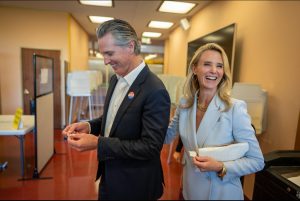 -Editorial
-Editorial
California voters are heading to the polls Nov. 3rd to decide Proposition 50, a legislative constitutional amendment that would authorize temporary changes to the state’s congressional district maps in response to partisan redistricting in Texas. The special statewide election follows a call from Governor Gavin Newsom and the legislature amid federal and state developments affecting residents.
A survey by the Public Policy Institute of California (PPIC), conducted October 7–14, found 56% of likely voters said they would support Proposition 50, while 43% opposed it. Support varies sharply along party lines, with 84% of Democrats in favor, compared with 10% of Republicans. Among independents, 55% said they would vote yes. Coastal regions showed stronger support than inland areas, and majorities across age, gender, and income groups were inclined to back the measure.
Proposition 50 builds on the reforms enacted under Proposition 20, which voters approved in 2010 to create the Citizens Redistricting Commission. The commission shifted responsibility for congressional mapmaking from the legislature and governor to an independent panel. The PPIC survey found 72% of Californians believe the commission has been mostly beneficial, a view shared across partisan, demographic, and regional lines.
The survey highlighted broader concerns shaping voter behavior. Californians cited political extremism and threats to democracy, economic conditions, and immigration as the nation’s top issues. At the state level, housing costs, inflation, and the economy were cited as the most pressing challenges. Despite these concerns, a majority approved of Governor Newsom’s performance, and roughly half of respondents said California is heading in the right direction.
Federal policy and political developments also influence voter sentiment. Only about one in four adults approve of President Donald Trump’s job performance, while Congress receives even lower approval ratings—14% among adults and 17% among likely voters. Californians largely view legal immigration as a benefit to the state’s economy, though opinions on federal immigration enforcement differ sharply along party lines.
Economic uncertainty is another factor, with slowing job growth, Federal Reserve interest rate adjustments, and a partial federal government shutdown affecting perceptions. Additionally, federal actions on tariffs, spending, and immigration continue to shape residents’ daily lives, while state lawmakers passed measures this year covering energy, artificial intelligence, insurance, and immigration policy.
With 68% of likely voters saying the outcome of Proposition 50 is “very important” and two-thirds closely following news about the measure, analysts say turnout and partisan divisions will be key in determining the election’s outcome.


